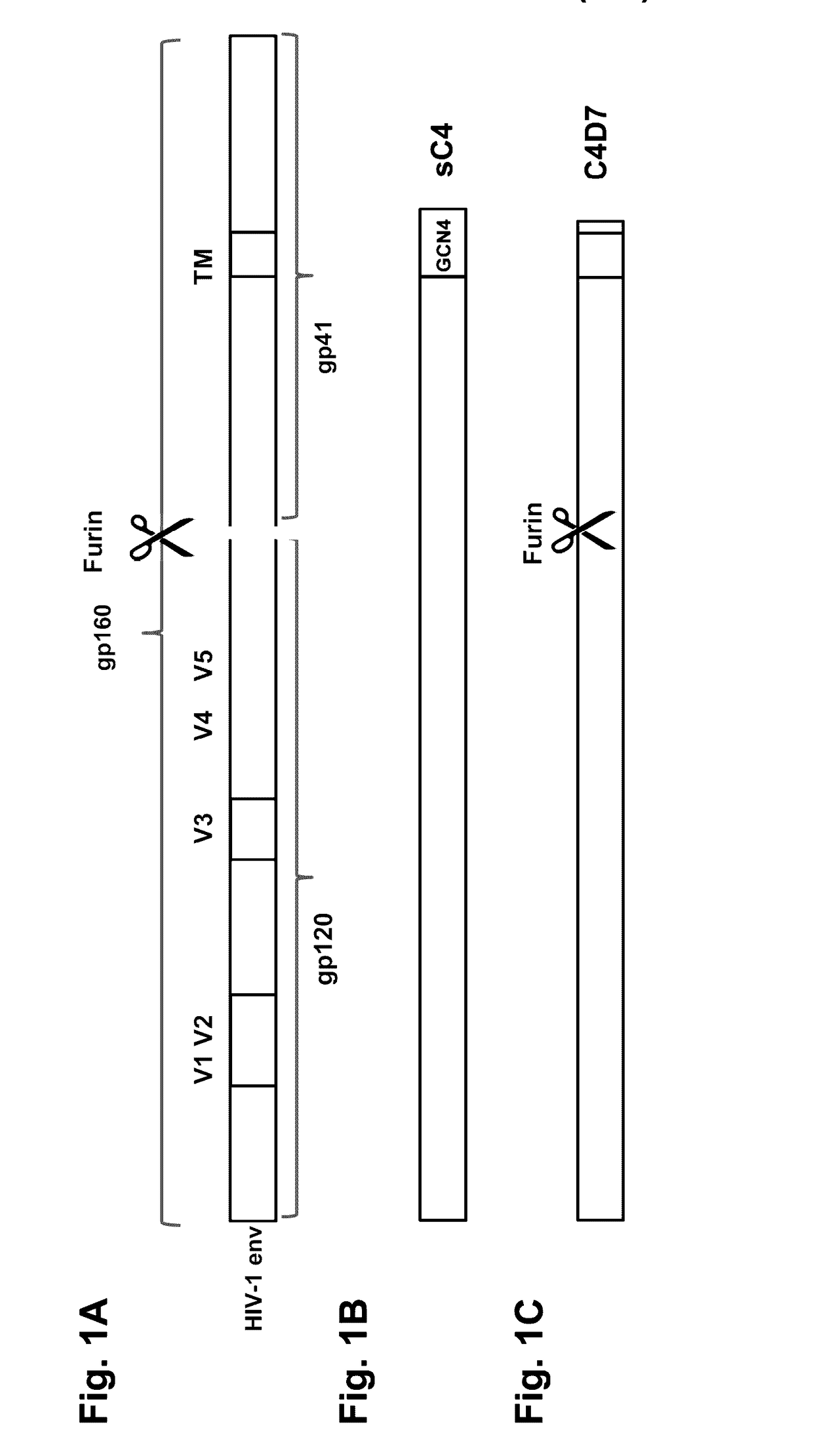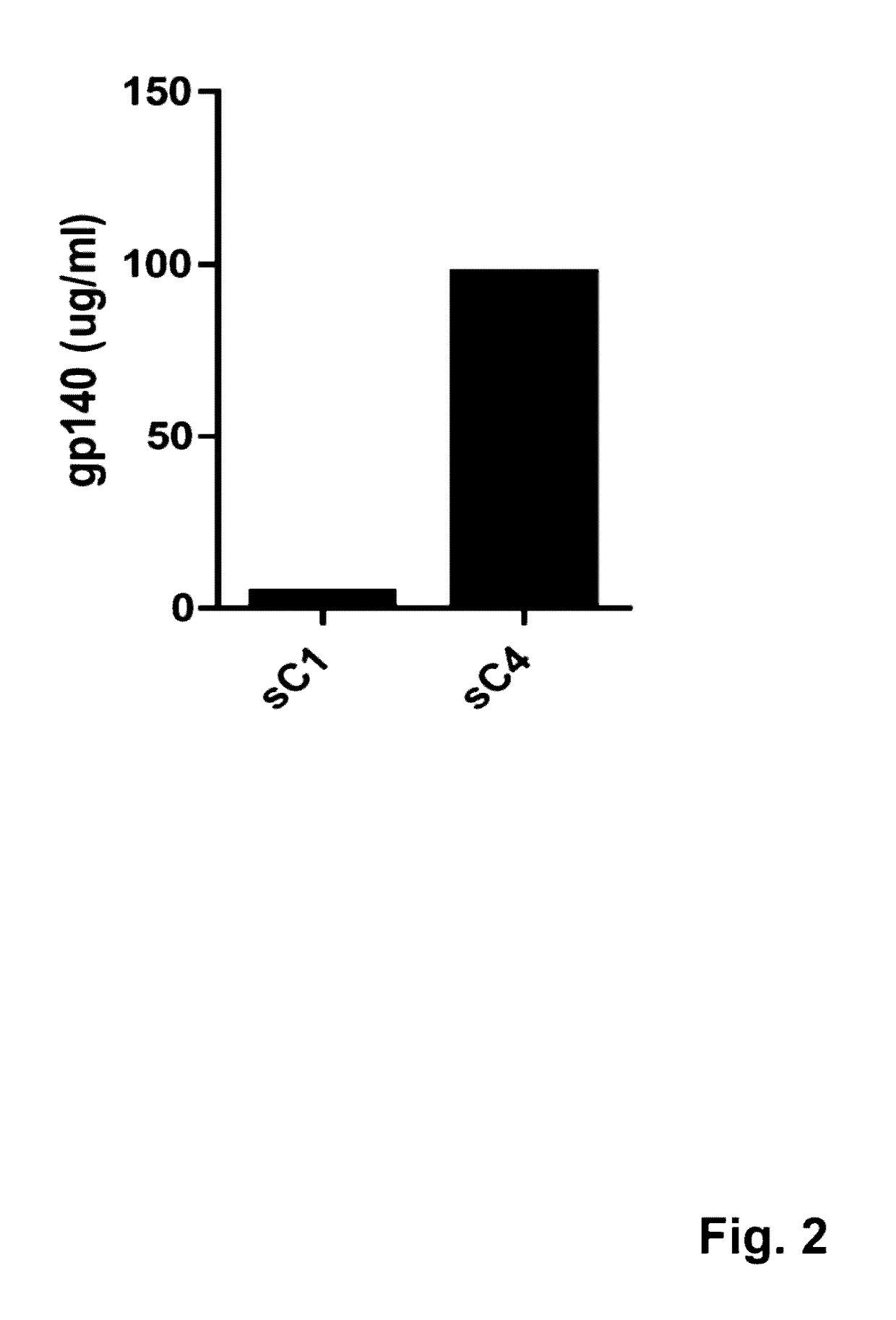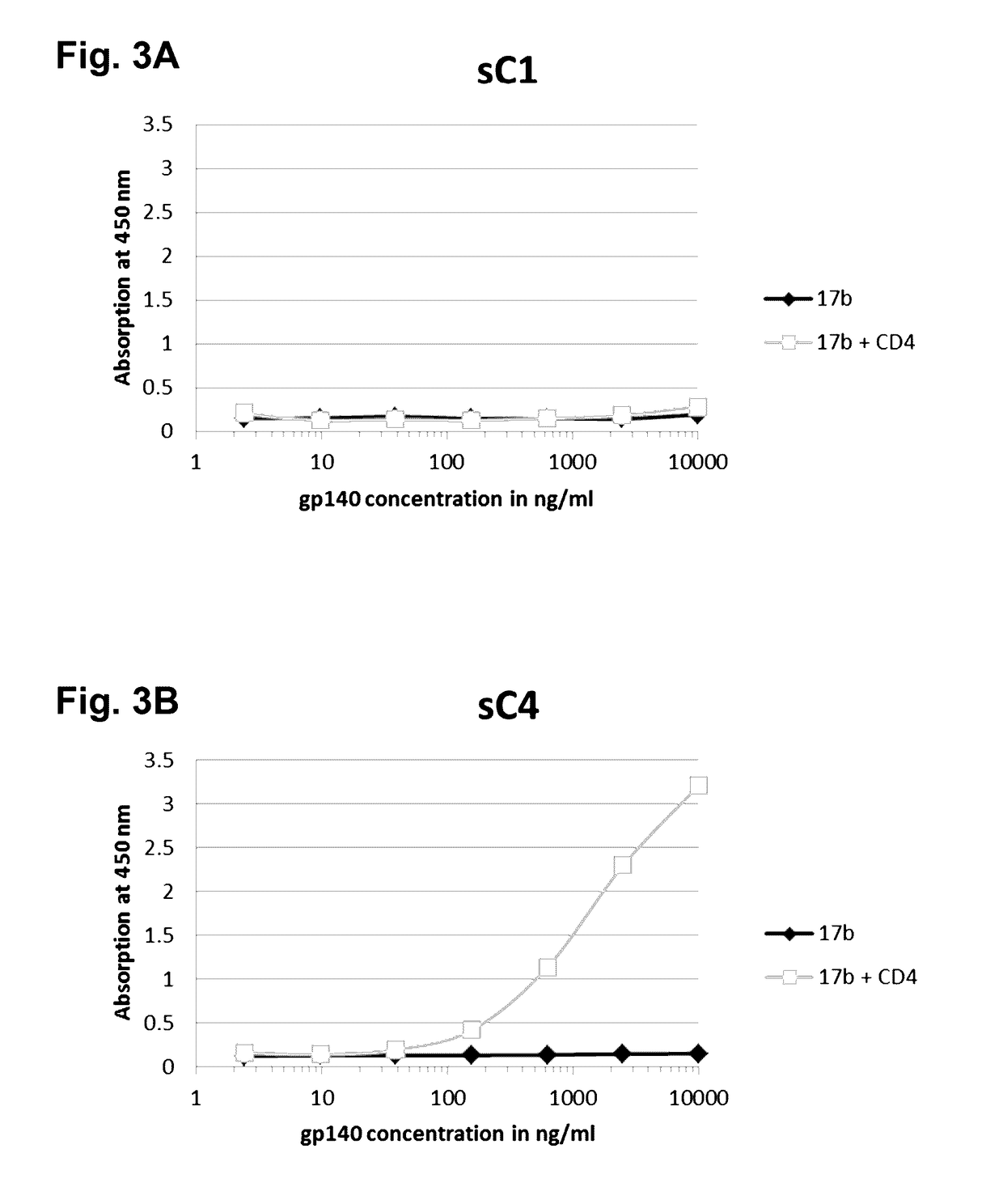Human immunodeficiency virus antigens, vectors, compositions, and methods of use thereof
a technology of immunodeficiency virus and antigen, applied in the field of human immunodeficiency virus antigen, vector, composition, etc., can solve the problems of unreported, unoptimized cell surface expression and immune response, unreported, etc., to improve cell surface expression and genetic stability, and induce immune responses.
- Summary
- Abstract
- Description
- Claims
- Application Information
AI Technical Summary
Benefits of technology
Problems solved by technology
Method used
Image
Examples
embodiments
[0142]Embodiment 1 is a nucleic acid encoding a synthetic HIV envelope protein comprising the amino acid sequence of SEQ ID NO: 8, or SEQ ID NO: 8 having one or more mutations selected from the group consisting of (i) I529P, (ii) K480E, and (iii) a combination of EK479-480RRRR, I529P, A471C and T575C.
[0143]Embodiment 2 is a nucleic acid according to embodiment 1, wherein the synthetic HIV envelope protein further comprises a signal sequence, for instance a signal sequence comprising the amino acid sequence selected from the group consisting of SEQ ID NOs:9 to 12, preferably SEQ ID NO: 9.
[0144]Embodiment 3 is a nucleic acid according to embodiment 1 or 2, wherein the synthetic HIV envelope protein further comprises a transmembrane domain, for instance a transmembrane domain having the amino acid sequence of SEQ ID NO: 13, preferably the synthetic HIV envelope protein further comprises SEQ ID NO:37 that is fused to the C-terminus of SEQ ID NO:8 and the N-terminus of the transmembrane ...
example 1
HIV Envelope Antigen Sequences
[0185]Several HIV envelope antigen sequences were designed having sequence similarity to the mosaic HIV antigen mos2Env (SEQ ID NO: 6; previously also described in WO 2010 / 059732). The newly designed, membrane bound, sequences were based on (a combination of) fully natural wild-type sequences from HIV envelope proteins, or a chimera of mos2Env sequence and wild-type HIV envelope protein sequences. In addition to full length envelope protein sequences (see FIG. 1A), sequences having a C-terminal truncation of the cytoplasmic domain were also designed (see, e.g., FIG. 1C). See also e.g., Schiernle et al., PNAS 1997; Abrahamyan et al., J Virol 2005); Edwards et al., J. Virology, 2002, 76:2683-2691. Soluble variants were also prepared by C-terminal truncation before the transmembrane (TM) region, which was replaced by a trimerization domain, such as a GCN4 trimerization domain (see, e.g., FIG. 1B). These soluble variants were further converted into a single...
example 2
n and Folding of Synthetic HIV Envelope Proteins
[0187]The expression level, folding, and cell-surface expression of synthetic HIV envelope proteins were measured.
[0188]Expression Levels
[0189]HEK293F cells were transiently transfected with a plasmid encoding the soluble synthetic HIV envelope proteins sC1 and sC4 as described in Example 1. Expression levels of the soluble protein were measured in the supernatant using quantitative Western blot (QWB). The results are shown in FIG. 2. The low expression levels for sC1 (which essentially corresponds to mos2Env with an added transmembrane domain) are in line with our recent insights for mos2Env. As demonstrated by the results, the sC4 variant of the invention showed significantly higher expression levels than the sC1 variant (control).
[0190]Protein Folding
[0191]Protein folding was tested by measuring the binding of soluble synthetic HIV envelope proteins to an antibody (MAb 17b) known to bind the co-receptor binding site of the HIV envel...
PUM
| Property | Measurement | Unit |
|---|---|---|
| Immunogenicity | aaaaa | aaaaa |
Abstract
Description
Claims
Application Information
 Login to View More
Login to View More - R&D
- Intellectual Property
- Life Sciences
- Materials
- Tech Scout
- Unparalleled Data Quality
- Higher Quality Content
- 60% Fewer Hallucinations
Browse by: Latest US Patents, China's latest patents, Technical Efficacy Thesaurus, Application Domain, Technology Topic, Popular Technical Reports.
© 2025 PatSnap. All rights reserved.Legal|Privacy policy|Modern Slavery Act Transparency Statement|Sitemap|About US| Contact US: help@patsnap.com



